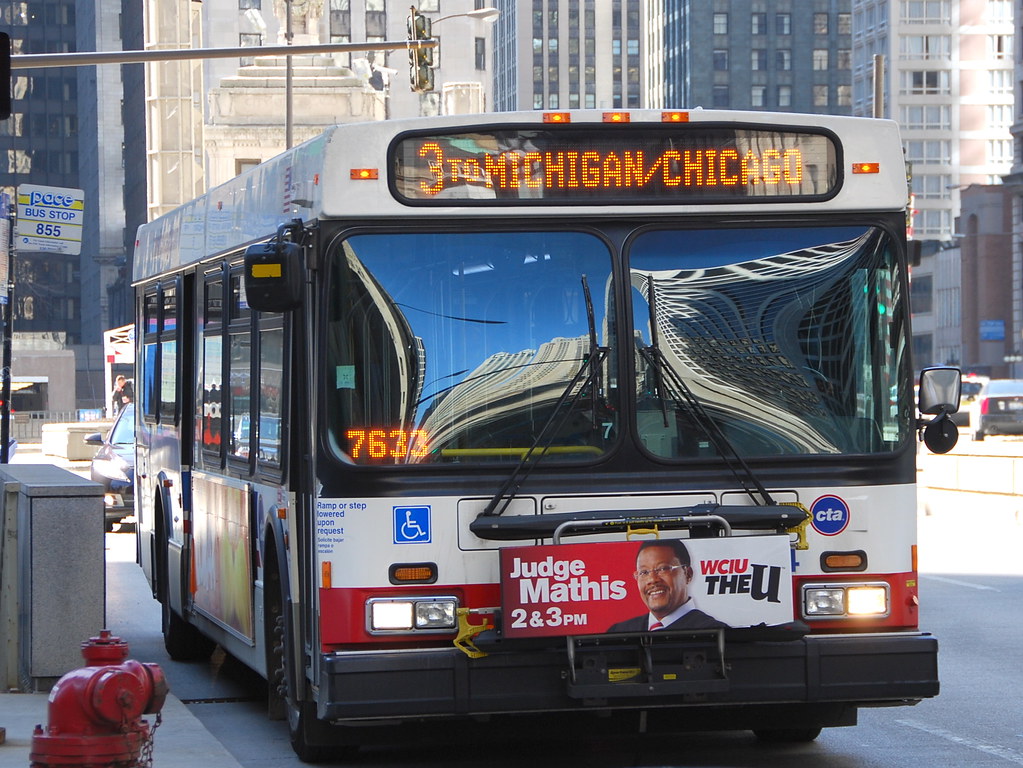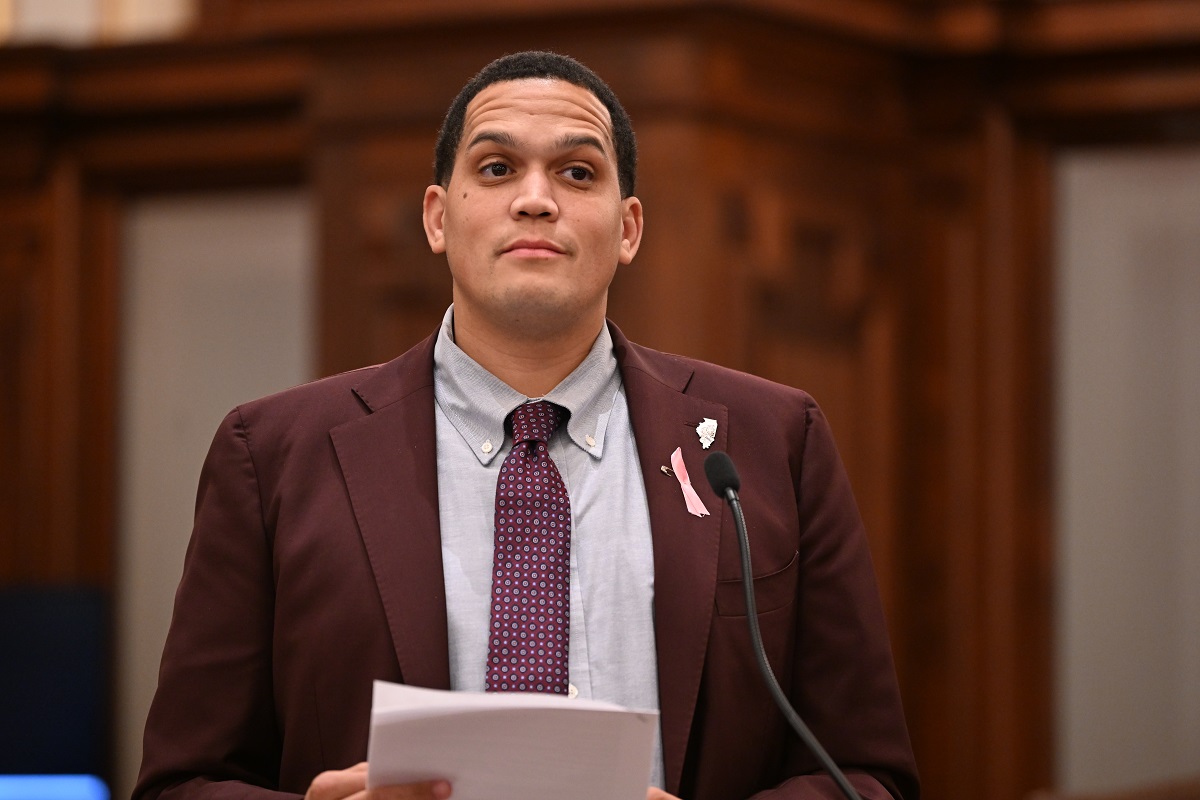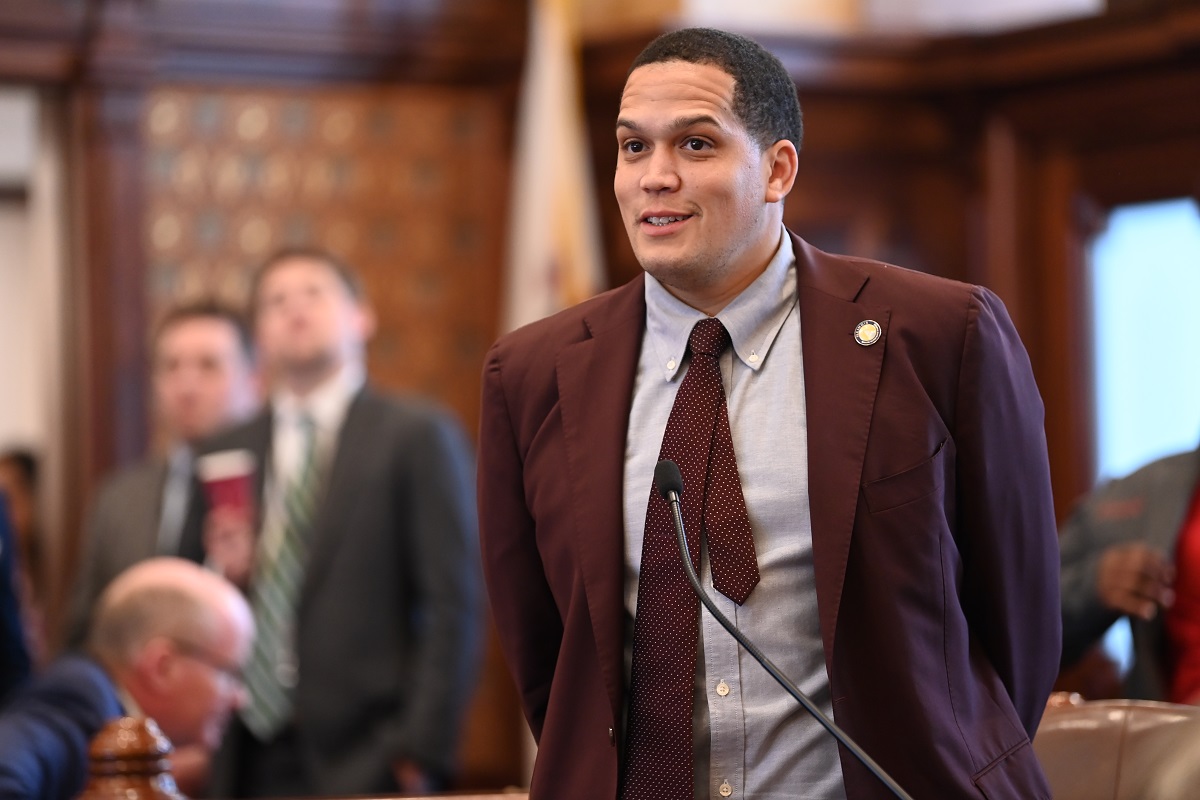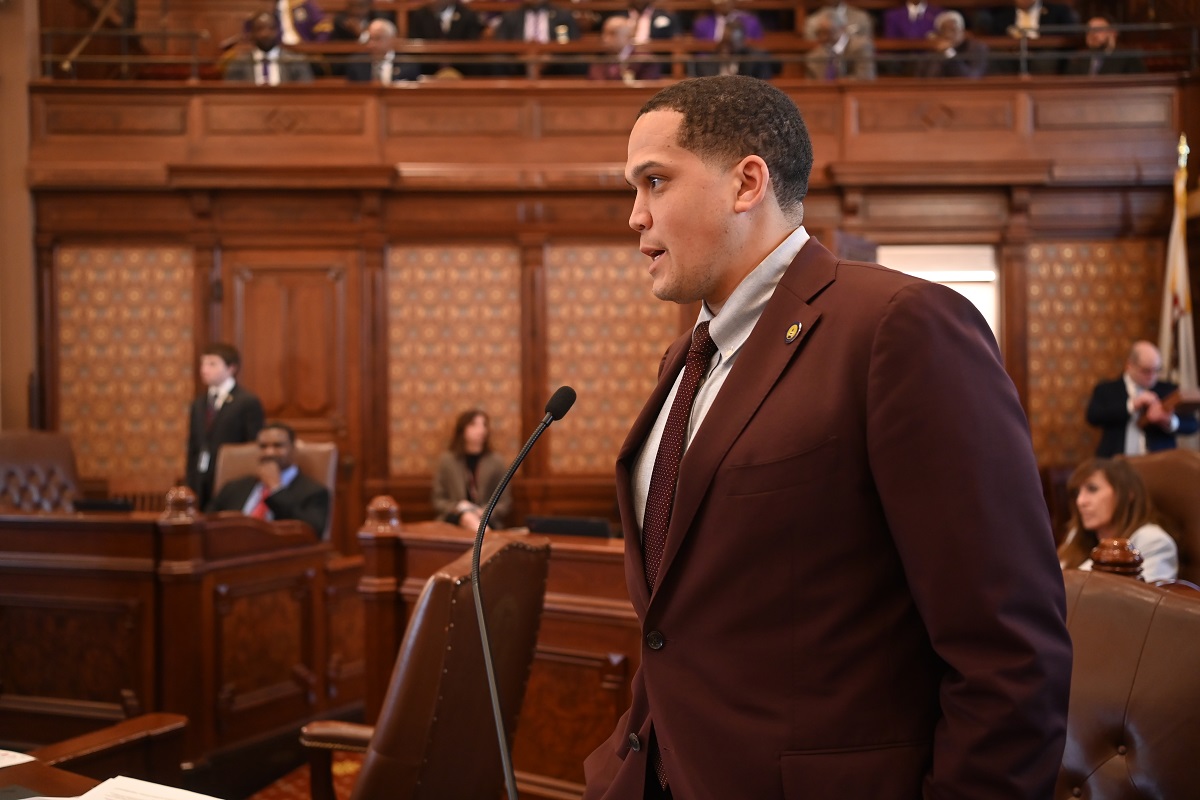- Details
- Category: Press Releases
 SPRINGFIELD — A measure aimed at addressing issues facing the current public transit system in Illinois is headed to the governor, thanks to support from State Senator Robert Peters.
SPRINGFIELD — A measure aimed at addressing issues facing the current public transit system in Illinois is headed to the governor, thanks to support from State Senator Robert Peters.
“Reliable, affordable and equitable public transit isn’t just about convenience – it’s the backbone of our state,” said Peters (D-Chicago). “We’re putting forth an initiative that places working people first – connecting them to jobs, to their families and to opportunities – all while implementing no new taxes and no increase in current taxes. This is a huge win for communities across Illinois.”
Senate Bill 2111 would create the Northern Illinois Transit Authority, replacing the Regional Transportation Authority. The NITA board would comprise of 20 members, with five appointments each from the governor, mayor of Chicago and Cook County Board president, as well as one from each chair or county executive of the collar county boards of DuPage, Kane, McHenry, Lake and Will.
Read more: Peters: Transit reform is a win for communities across Illinois
- Details
- Category: Press Releases
 SPRINGFIELD — A major property tax relief package intended to give Illinois residents tangible tools to stay financially secure has passed the Senate with support from State Senator Robert Peters.
SPRINGFIELD — A major property tax relief package intended to give Illinois residents tangible tools to stay financially secure has passed the Senate with support from State Senator Robert Peters.
“This measure is about fairness and compassion for our most vulnerable residents,” said Peters (D-Chicago), who chaired the Property Tax Payment Plan Task Force in 2024. “Rising property taxes shouldn’t force seniors or families out of the home they’ve worked their whole lives to afford, and this bill would ensure they don’t.”
Senate bill 642 would deliver critical updates to help seniors on fixed incomes and help families facing economic challenges manage rising property tax costs. Under the measure, the maximum income limit for the Low-Income Senior Citizens Assessment Freeze Homestead Exemption would increase substantially over the next several years, beginning at $75,000 for taxable year 2026, increasing to $77,000 for taxable year 2027 and settling at $79,000 for taxable year 2028 and beyond.
Read more: Peters-supported measure to expand property tax relief for seniors
- Details
- Category: Press Releases
 SPRINGFIELD — An initiative from State Senator Robert Peters aims to raise the minimum age at which minors can be detained and limit the use of detention in certain situations where the minor is not charged with a violent crime, making it clear the state is moving away from harsh detention practices and prioritizing rehabilitation.
SPRINGFIELD — An initiative from State Senator Robert Peters aims to raise the minimum age at which minors can be detained and limit the use of detention in certain situations where the minor is not charged with a violent crime, making it clear the state is moving away from harsh detention practices and prioritizing rehabilitation.
“Our juvenile justice system should focus on rehabilitation over punishment,” said Peters (D-Chicago). “By raising the age at which a minor can be detained and emphasizing alternative methods, we’re giving young people a fair chance at reformation without subjecting them to the damaging effects of detention at an early age.”
Peters’ measure makes numerous improvements to Illinois’ juvenile justice system. First, the bill raises the age at which a minor may be detained from 10 years old to 12 years old in 2026 and then to 13 years old – in some situations – in 2027. Through the measure, arrest would only be used as a last resort and under strict conditions, and minors can only be detained if there is probable cause to believe they are delinquent and that immediate and urgent detention is necessary, or if they have repeatedly failed to appear at scheduled hearings.
Read more: Peters’ measure to raise juvenile detention age, focus on rehabilitation
- Details
- Category: Press Releases
 SPRINGFIELD — State Senator Robert Peters is protecting workers and keeping Illinois’ economy moving with a new pilot program that would ensure unions, employers and public agencies can resolve disputes quickly – even as the federal mediation system faces major cuts.
SPRINGFIELD — State Senator Robert Peters is protecting workers and keeping Illinois’ economy moving with a new pilot program that would ensure unions, employers and public agencies can resolve disputes quickly – even as the federal mediation system faces major cuts.
“With the federal mediation system stretched thin, our pilot program would make sure our state’s workers and employers still have access to trained mediators who can help resolve conflicts quickly and fairly,” said Peters (D-Chicago), chair of the Senate Labor Committee. “This is about giving people a path toward solutions without costly disruptions that affect our residents.”
Peters’ measure would create the Labor Mediation Services Pilot Program to be used in place of the Federal Mediation and Conciliation Service when the federal program is not available. The FMCS is a small, independent federal agency that provides mediation, training and facilitation to resolve labor-management disputes – disagreements between unions and employers. These efforts help avoid costly disruptions in production, services and supply chains, ensuring economic stability and growth.
Read more: Peters measure to create state-run labor mediation program
More Articles …
- Peters releases statement following Grayson conviction
- Peters urges federal administration to prevent SNAP benefit shutdown
- Peters responds to federal activity in Southeast Side
- Peters condemns militarized immigration raid at South Shore Drive apartment building; ransacking residents’ homes and violating their rights
Page 3 of 91




